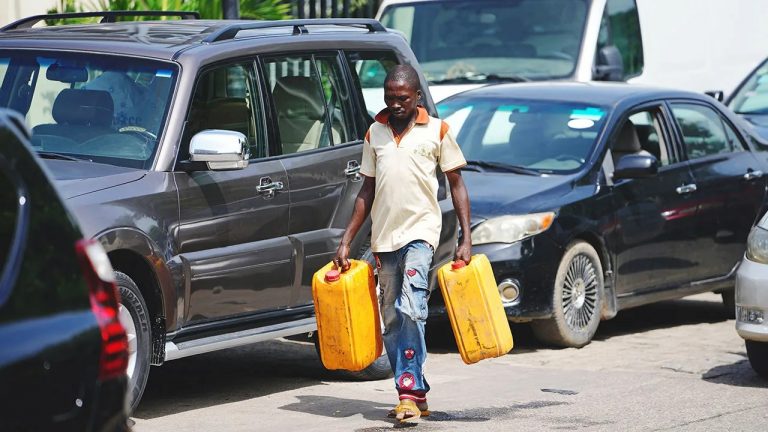
Nigeria is teetering on the brink of a fresh fuel scarcity crisis as its debt to petrol traders soars past $6 billion, following a significant rise in its subsidy payments, which have reportedly doubled since early April.
According to a Reuters report, the Nigerian National Petroleum Corporation (NNPC) is struggling to balance fixed domestic pump prices with escalating international fuel costs, a predicament that underscores the nation’s deepening economic woes.
This precarious situation emerged as NNPC capped pump prices following the removal of subsidies on May 29, 2023. Despite rising international crude oil prices and a weakening naira, the domestic price of petrol has remained stable, leading to widespread speculation that the government may have reintroduced some form of subsidy.
Register for Tekedia Mini-MBA edition 19 (Feb 9 – May 2, 2026): big discounts for early bird.
Tekedia AI in Business Masterclass opens registrations.
Join Tekedia Capital Syndicate and co-invest in great global startups.
Register for Tekedia AI Lab: From Technical Design to Deployment (next edition begins Jan 24 2026).
According to industry insiders who spoke to Reuters, this discrepancy has compounded NNPC’s financial burden, pushing its debt to petrol traders to unprecedented levels.
The financial strain on NNPC became evident earlier this year when late petrol payments exceeded $3 billion. As of now, unpaid amounts for January imports alone have contributed to a ballooning debt of between $4 billion and $5 billion, according to the report.
Under contractual obligations, NNPC is required to settle payments within 90 days of delivery. However, payment delays have caused significant friction with petrol traders.
“The only reason traders are putting up with it is the $250,000 a month (per cargo) for late payment compensation,” explained an industry source.
Reuters reports that at least two suppliers have already stopped participating in recent tenders after reaching their self-imposed debt exposure limits with Nigeria, refusing to send more gasoline until they receive payments. This situation raises the likelihood of fuel scarcity in the coming days, as NNPC struggles to secure sufficient fuel imports.
The federal government has been in denial of current subsidy payments on petrol. However, a recent report submitted to President Tinubu by Finance Minister Wale Edun, projects that fuel subsidies could consume about N5.4 trillion in 2024, up from the N3.6 trillion budgeted for 2023.
In a May interview, Edun suggested that the removal of the fuel subsidy is an ongoing process, indicating that complete removal has not yet been achieved.
“It is an ongoing conversation, it is an ongoing process of ensuring that fuel subsidy is eliminated from the Nigerian economy, that is what Mr. President’s intent is and that is what is being worked towards,” he stated.
The removal of the fuel subsidy has been contentious, particularly as crude oil prices rise and the exchange rate continues to depreciate. Several analyses based on the international price of petrol prove that a partial subsidy still exists despite official claims of its removal.
Against this backdrop, observers maintain that the federal government has subtly reintroduced the subsidy since its supposed removal on May 29, 2023. Special Adviser to the President on Energy, Mrs. Olu Verheijen, noted that the federal government reserves the right to intermittently pay fuel subsidies to mitigate economic hardship.
On the other hand, NNPC has insisted that no subsidies have been paid into its account from the federal government. Addressing the issue in August 2023, NNPC’s Group Chief Executive Officer, Mele Kyari, stated that the company is merely recovering the cost of imports and that the federal government has not paid any subsidies since May.
A recent report by Tekedia highlighted the unsustainable nature of current subsidy payments. According to data from the National Bureau of Statistics (NBS), the pump price of petrol rose to N769.62 per liter in May 2024. This represents a staggering 223.21% increase from the N238.11 per liter recorded in May 2023 and a 9.75% rise from April 2024’s price of N701.24.
The report questioned the sustainability of subsidy payments, given the significant financial burden and the rising costs amidst Nigeria’s dwindling oil revenue.



